HS2: MPs back first phase of rail link despite rebellion
- Published
- comments
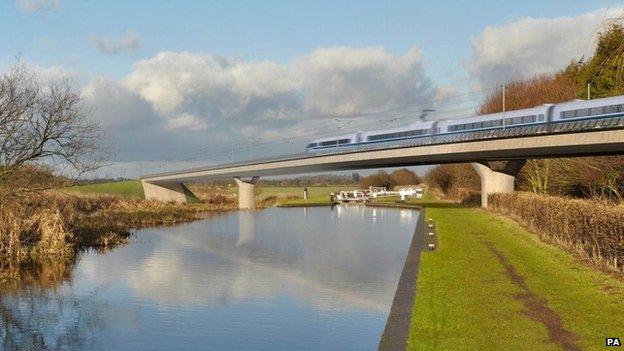
The HS2 link between London, the Midlands and the north of England is expected to cost £42.6bn
MPs have decisively backed legislation enabling the proposed HS2 high-speed rail link between London and the West Midlands to be constructed.
A bid by Tory ex-minister Cheryl Gillan to halt the plan was defeated by 451 votes to 50, a majority of 401.
Transport Minister Robert Goodwill said it was an "important step" in taking the controversial project forward.
A total of 34 Tories voted against the government, while a total of 47 Tories missed the vote or abstained.
Although MPs' support for the High Speed Rail (London - West Midlands) Bill 2013-14, external at second reading means that they approve of its general principles, the bill will undergo many more hours of detailed scrutiny as it continues its passage through Parliament.
Thirty-two Conservatives backed Mrs Gillan's amendment, while one - James Gray - acted as a teller for the rebels.
After rejecting Ms Gillan's amendment, MPs approved the bill at second reading by 452 to 41 votes, a majority of 411.
Twenty-four of the rebel Tories voted against the government again this time, as did two other Tories, John Redwood and Sir Richard Shepherd.
Last June, 21 Conservative backbenchers opposed the government in a Commons vote laying the groundwork for HS2 and the size of the rebellion was expected to be larger on Monday.
The High Speed Rail (London - West Midlands) Bill 2013-14, which would authorise the first phase of the multi-billion project, cleared its first parliamentary hurdle when it was given a second reading by MPs.
The proposed legislation would:
Grant the powers required to construct and operate phase one of HS2, between London and the West Midlands
Because of its complexity, and opposition to it, the bill is not expected to become law until after the 2015 general election
The bill does not guarantee that HS2 will be built, but HS2 cannot be built without the bill becoming law
The government proposes to start construction in 2017, with the line between London and Birmingham due to be operational by 2026
A separate bill will be brought in later by the government to allow the the second phase - north of Birmingham - to go ahead, with the aim of that part opening in 2033
Speaking at the start of Monday's debate, Transport Secretary Patrick McLoughlin said the concerns of critics of the project must be addressed and that references to opponents as "either Luddites or nimbys" were unhelpful.
He said there would be "fair compensation" for those directly and indirectly affected by the scheme and the impact on the environment must be mitigated.
But he said there was an urgent need for new rail capacity and the plan would deliver better connectivity and wider economic benefits to the whole of the UK.
'Careful scrutiny'
"Built right, on time and on budget, HS2 can help our great cities thrive... This project deserves careful scrutiny but Britain deserves it to go ahead."
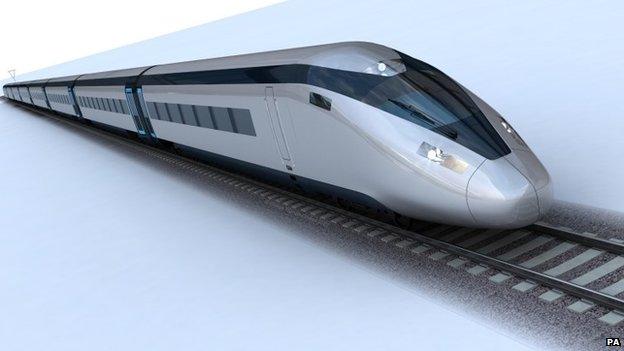
The IEA says it would be better to improve links between northern English cities than build HS2
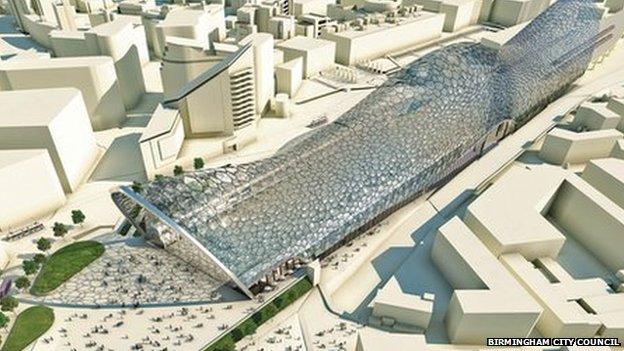
Phase one of HS2, London to Birmingham, could be completed by 2026
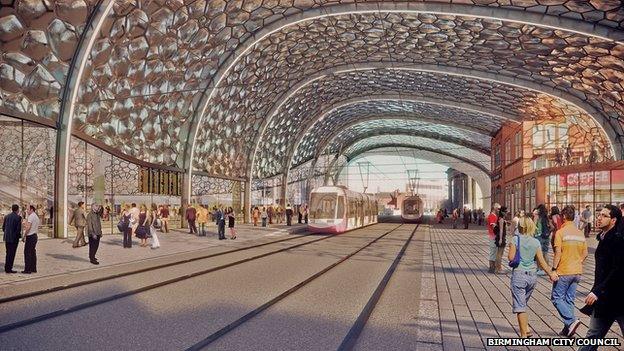
The proposed new Curzon station in Birmingham would link HS2 phase one with the second phase towards Leeds and Manchester
A number of ministers whose constituencies lie on the proposed route - including Europe Minister David Lidington and Attorney General Dominic Grieve - were given permission to miss Monday's vote.
And recently appointed Treasury minister Andrea Leadsom, who has spoken out against the project in the past, is in Brussels and was not present in the Commons.
PM David Cameron was also absent. No 10 said this was "not out of the ordinary as he does not always take part in Commons votes".
But Labour's shadow transport secretary Mary Creagh said: "It is extraordinary that David Cameron couldn't be bothered to turn up to vote in favour of HS2 in the House of Commons on Monday.
"He is unable to stand up to rebel ministers opposed to HS2 and unwilling to vote in favour of his own government's biggest infrastructure project."
But a number of MPs stated their opposition to HS2 during the debate, which lasted for nearly six and a half hours.
'Broad consensus'
Conservative MP for North West Leicestershire Andrew Bridgen said 240,000 people living within a mile of the proposed route were not entitled to compensation and would be "trapped in houses they cannot sell".
Former cabinet minister Cheryl Gillan, who tabled the amendment designed to derail the proposed legislation, said the £42.6bn project would threaten much-needed investment on the rest of the railway.
"I started as a nimby but I have looked at this project and I do not believe it is the best answer to the UK's transport problems," the Chesham and Amersham MP said.
"Is this really a top priority and the best way to spend almost £50bn worth of taxpayers' money?"
Labour's Barry Sheerman, MP for Huddersfield, said that, rather than spreading economic benefits more widely across the UK, it would "suck more powers to London and the South East".
Labour's support had been in doubt because of rising costs, but shadow transport secretary Mary Creagh said the party "had had another look" to check it still provided value for money and would support the plan.
"We have a broad consensus across the parties that this is the right thing for the nation and I hope we can proceed on that basis," she said.
'Flawed'
But in a new report, The Institute of Economic Affairs (IEA), external said the government risked misleading the public with claims that HS2 would transform the north of England.
The report's author, Richard Wellings, told BBC Radio 4's Today programme that instead of building HS2 the government should improve local and regional links in the north of England, including a cross-Pennine project linking Sheffield, Leeds and Manchester.
The Department for Transport said the IEA report was "flawed" and "simply wrong to say High Speed 1 hasn't brought significant benefits" to places like Ashford.
Meanwhile, the British Chambers of Commerce (BCC) has called on the government to speed up construction of the line.
Both phases of the HS2 link are expected to cost £42.6bn, including contingencies, with another £7.5bn for trains.
- Published30 April 2014
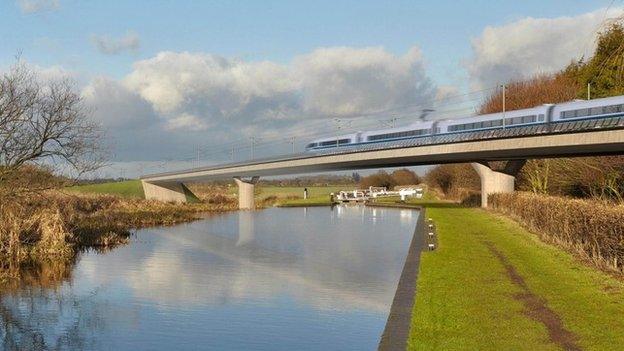
- Published6 October 2023
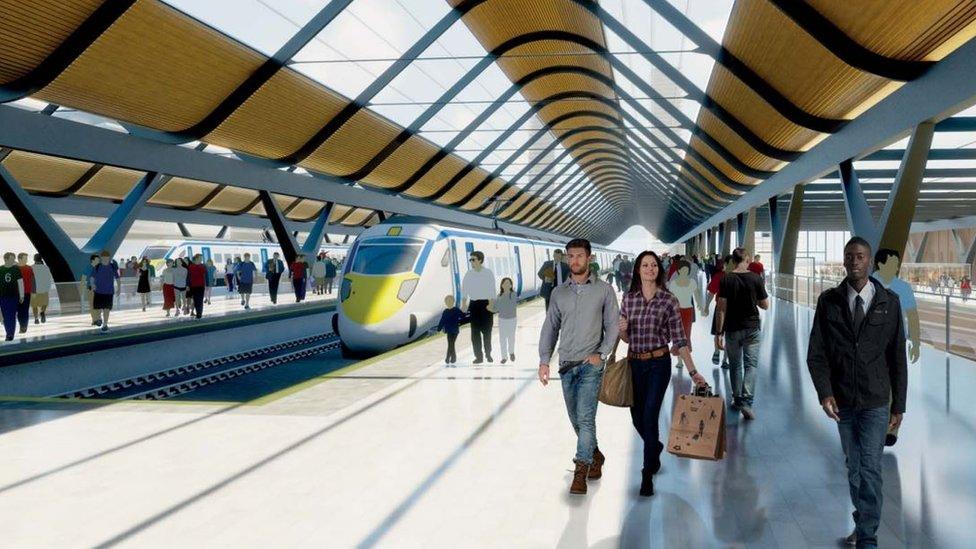
- Published27 April 2014

- Published23 April 2014
- Published10 April 2014
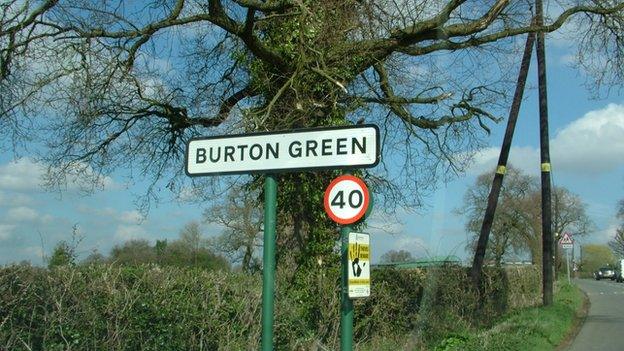
- Published27 February 2014
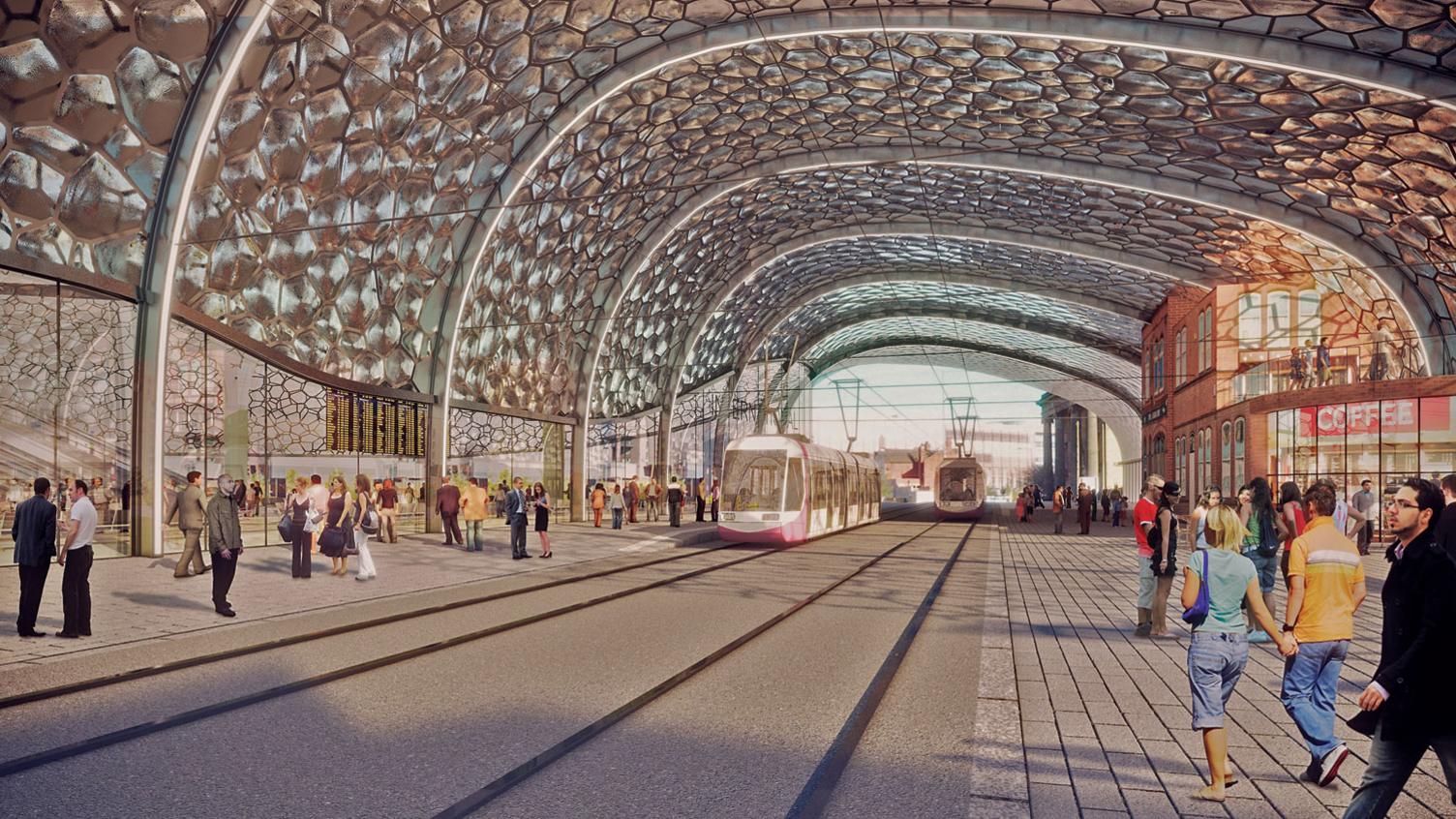
- Published29 October 2013
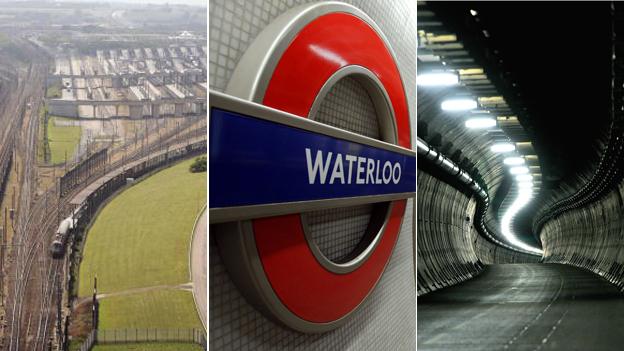
- Published4 November 2013